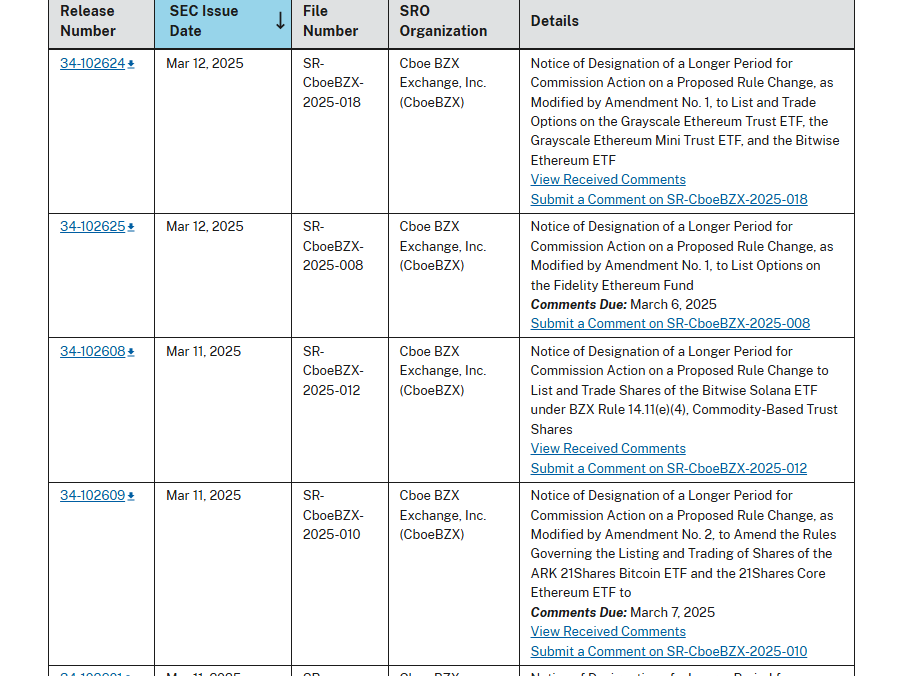The U.S. Securities and Exchange Commission (SEC) has once again delayed its decision on approving exchange-traded funds (ETFs) for XRP, Solana (SOL), Litecoin (LTC), and Dogecoin (DOGE). This decision adds to the uncertainty surrounding crypto regulation, leaving investors wondering about the future of these assets. An ETF approval could bring institutional investment and price growth, while ongoing delays may contribute to market volatility.
Why did the SEC postpone its decision?
The SEC delays the approval of crypto ETFs because they want to avoid market manipulation and because there are liquidity risks that affect investor protection. The SEC appears to be being deliberately cautious about crypto ETF approvals, given their continued hesitancy to forward with such products despite enabling easier investment access for investors through ETFs. The agency needs proof that approved ETFs satisfy securities laws because they must protect investing customers adequately.
The period until the SEC decides will be characterized by market price volatility and uncertainty. After the agency gives its approval, institutional investors will enter the ETF market, leading to substantial price increases. The SEC’s rejection of new ETFs causes prices to drop, along with weak investor confidence.

Furthermore, approval would boost the recognition of XRP, Solana, and Litecoin alongside Dogecoin, thus increasing their attractiveness to regular investors. ETFs present an opportunity to remove security-related hesitations among institutional investors who refrain from direct crypto investments.
What’s next for crypto ETFs?
The Securities and Exchange Commission advances with limited speed in its approval process for crypto-related financial products including Bitcoin futures Exchange-Traded Funds. The regulatory agency shows resistance to approving crypto ETFs. The development of regulatory frameworks creates a possibility for XRP, Solana, Litecoin and Dogecoin ETFs to receive approval which will lead to increased institutional adoption.
People who invest should monitor federal decision-making at the SEC as well as market patterns and regulatory developments. Their proactive approach will enable them to move through volatile situations and select more advantageous investments. During this period of regulatory development, long-term investors can identify new investment opportunities.
Continuing delays from the SEC show how difficult it is to regulate cryptocurrency while simultaneously affecting market sentiment. The market volatility will continue until the regulatory situation becomes clear. The approval of these ETFs would stimulate institutional investment and transform the digital currency market. Regulatory confusion continues to act as the primary element, molding the direction of the industry.







